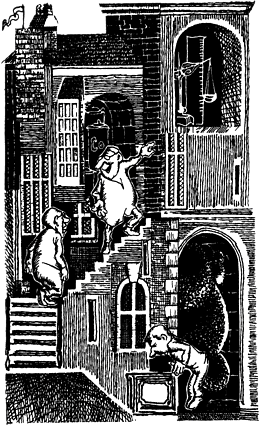107Stories About ChemistryINDEX |
A Chemical Museum 58. A Question with No Answer If we gathered together the greatest chemists of the world and asked them only one question: how many chemical compounds can the elements of the Periodic System form, this authoritative assembly would be unable to give even an approximate answer. We know the simplest chemical compound: it is the hydrogen molecule. There can be no simpler compound, because hydrogen is the first and lightest representative of the Mendeleyev Table.  But what about the most complex? Here we can say nothing definite. Chemistry knows truly gigantic molecules consisting of tens and hundreds of thousands and even millions of atoms. Yet nobody can say whether there is any limit to complexity. On the other hand, we could estimate comparatively precisely how many chemical compounds are known. But the number we got today would be out of date by tomorrow. At present about ten new substances are synthesized each day in the laboratories of the globe, and this daily yield increases from year to year. The chemical information service tells us that altogether about two million chemical compounds have been isolated from natural raw materials or obtained artificially. This number is impressive but it appears that the contributions of the inhabitants of the Big House vary widely. The number of compounds of, say, the noble gases, helium, neon, and argon, is zero. Authentically three compounds have been obtained for the rare-earth element promethium (physicists prepare it artificially in nuclear reactors), and these are very ordinary ones: the hydrate, the nitrate, and the chloride. As to the other artificial elements, the situation is no better. Some of them have been prepared in amounts of so many atoms... So what is there to be said about their compounds! But there is a unique element in the Mendeleyev Table. It is quite exceptional with respect to the number of complex substances it can form. It is the occupant of Flat No. 6 in the Big House and its name is carbon. Of the two million different molecules in existence, one million 700 thousand are molecules with a framework of carbon atoms. These compounds are studied by a huge branch of chemistry called organic chemistry. The compounds of all the other elements constitute the domain of inorganic chemistry. So you see, organic substances are almost six times more numerous than inorganic substances. A new organic substance is much easier to synthesize, as a rule. It would be excellent if inorganic chemists could report the preparation of at least one new compound per day. True, prospects have become more promising in recent years Organic chemists are aided by a remarkable peculiarity of carbon atoms. |





